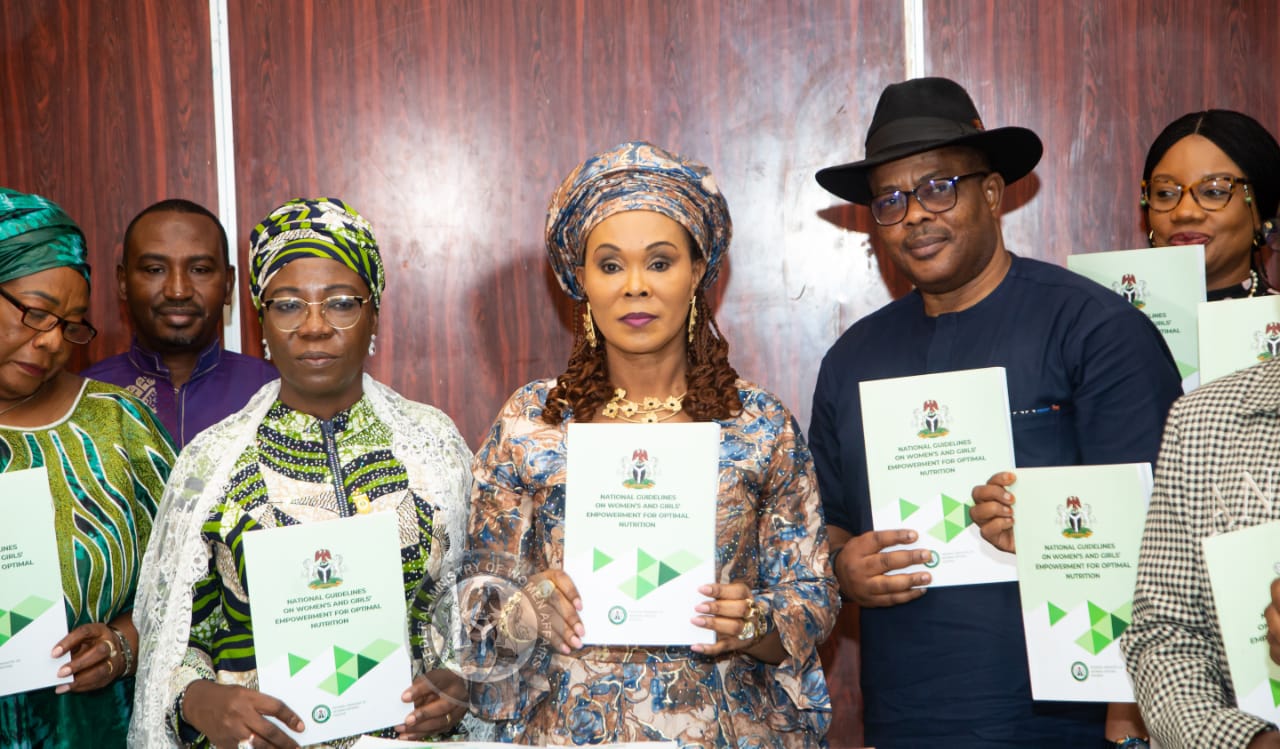The Federal Government has unveiled a national guideline to bridge existing gaps in all the multi-sectoral approaches to adequate nutrition with a view to checking issues of stunting, wasting, and anaemia among women and children.
The Minister of Women Affairs, Mrs. Uju Kennedy-Ohanenye, said this at the launch of the national guidelines on women and girls’ empowerment for optimal nutrition held on Wednesday in Abuja.
She stated that the document aims to promote healthy living and longevity, not only among women and girls, but also among the Nigerian population.
According to the minister, Nigeria has the third highest record of wasted children in the world, with malnutrition being responsible for the deaths of many of them before the age of 5, and a high percentage of its women of reproductive age also suffering from anaemia.
“Optimal nutrition is not just a health imperative but a basic human right as enshrined in the Universal Declaration of Human Rights, to which Nigeria is a signatory.
“The consequences of malnutrition, including cognitive impairments, reduced productivity, and chronic illnesses, can result in significant Gross Domestic Product (GDP) losses of 2.3% annually, translating into substantial economic burdens.”
Kennedy-Ohanenye disclosed that it is in recognition of this fact that the Ministry, in line with the Renewed Hope Agenda of the present administration, commenced its sustainable empowerment programmes to equip women and girls as key drivers in the malnutrition echo system on skill acquisition and entrepreneurship.
She hoped that it would enable them to earn and cater adequately to their families’ food needs, among other things.
The Minister said: “Our interventions extend beyond nutrition to encompass comprehensive empowerment strategies.
“We have developed and disseminated the National Women’s Economic Empowerment (WEE) Policy and Action Plan, procured and distributed empowerment materials, provided agricultural training, and renovated skill acquisition centres to equip women with the tools they need to thrive.”
While urging participants at the launch to make full use of the guidelines to ensure optimal nutrition for women and girls’ in the country, Kennedy-Ohanenye thanked donor agencies, development partners, and other relevant stakeholders for their contributions to the manual’s production.
She added that the Ministry remains committed to ensuring the realization of the policies, programmes, and objectives of the government in line with its mandate.
The Permanent Secretary, Federal Ministry of Women Affairs, Ambassador Gabriel Aduda, stated in his opening remarks that the launch of the guidelines marked a milestone for the integration of women and girls concerns for optimal nutrition, which were not adequately covered by other existing policies.
Mr. Tony Iwere, the Director of Planning, Research, and Statistics, who represented the permanent secretary, expressed concern over the high rate of malnutrition in women and children in Nigeria, as reflected in the statistics on stunting, wasting, anaemia, and micronutrient deficiency, among others.
He noted that the booklet reflects the ongoing efforts to achieve food security, a gender-sensitive society, and inclusivity in national economic growth and development.
Aduda stated further that, in line with the President Bola Ahmed Tinubu-led administration agenda, the Ministry is committed to building a just society in which women, girls, and other vulnerable groups will enjoy the same opportunities, rights, and obligations in all spheres of life,.
He said such opportunities should be devoid of discrimination with their needs and concerns mainstreamed equitably into all sectors of national development.






















Leave a comment